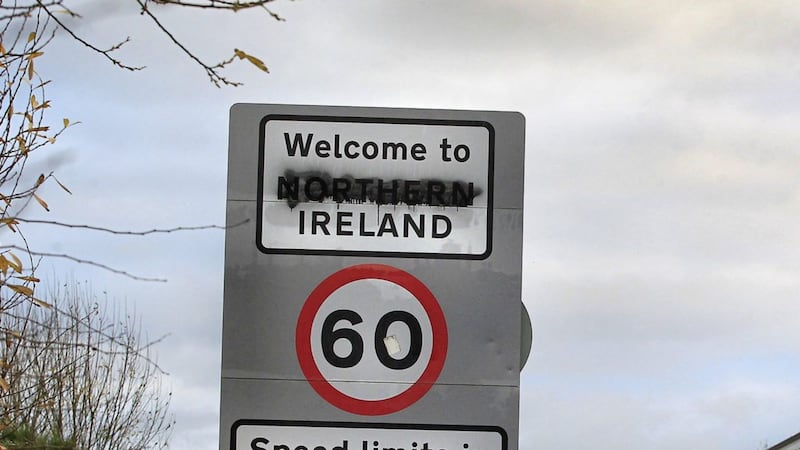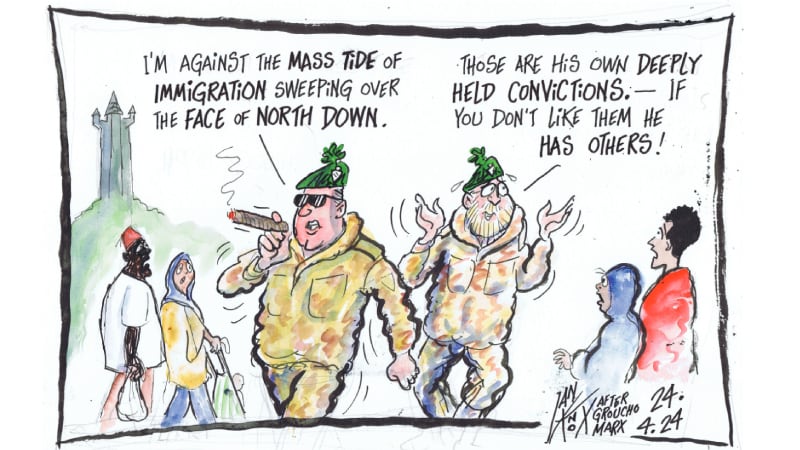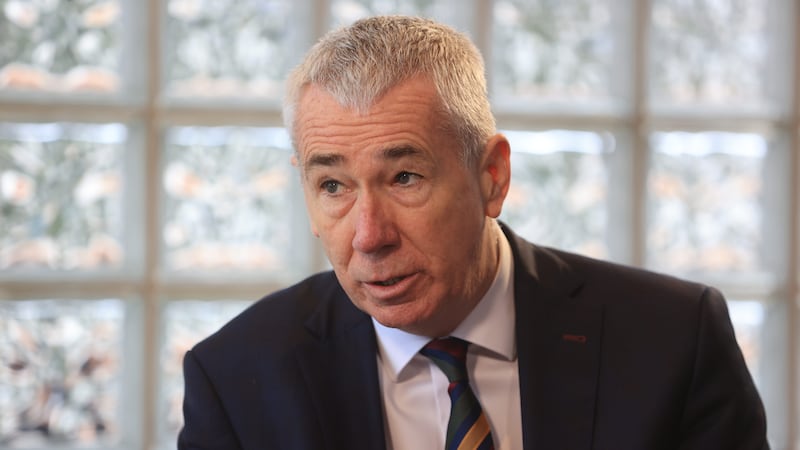Republican and nationalist people in the six counties must be currently wondering what the future holds for them politically and it seems the same applies to those from the unionist community who see the real prospect of them being in a minority in a region that was supposed to guarantee them permanent majority rule.
I suspect that sooner or later unionists will realise that the only way they have any hope of maintaining some semblance of unionism in the north will be to minimise the anti-Catholic ethos of their party and there are hints that this is already happening in the Ulster Unionist Party.
On the republican side Sinn Féin, which is riding high in the polls at the moment both here and in the Republic, will feel that further success is easily within their grasp. I do not feel, however, that this will last long.
The coalition government in the Republic led by the ineffectual Micheál Martin and supported by the increasingly arrogant Leo Varadkar has led the country into a debt crisis that is almost as big as the bank bailout a few years ago as a result of the Covid-19 crisis and which is significantly higher than other European countries.
The only opposition I have witnessed has been from Aontú leader Peadar Tóibín. A fact that is seldom ever mentioned by political commentators is that taking account of all the taxes raised in the north of Ireland, hundreds of millions extra every year are required from taxes raised in Great Britain to keep services here intact. We in the north are an entirely unenviable entity.
I believe that a new political structure in Ireland should be seriously considered along the lines of Éire Nua which would result in unionists having a significant influence in any new all-Ireland structure. Sinn Féin abandoned a similar policy many years ago but may wish to re-consider this backward step.
I know that Aontú, the young and new all-Ireland political party is currently heavily engaged in community activities and growing in influence throughout both parts of this island and is challenging the issues that Sinn Féin and SDLP in the north and Sinn Féin in the Republic are doing little or nothing about. I hope that sooner rather than later politics throughout the island of Ireland returns to one where it is led from grassroots rather than party cabals.
EAMON DALLETT
Dungiven, Co Derry
Elected representatives don’t always know what is right
Those of us who are opposed to ‘vaccine passports’ under any circumstances do so because we appreciate living in a free society where the state identifies itself to us, the people, and not the other way round. The latest campaign to introduce mandatory passports is another step towards a society where the state regulates every aspect of our lives.
As someone who has regularly voted for the SDLP in the past, I am disturbed by the party’s transition, from one founded upon the Civil Rights movement, to one which actively seeks to remove our civil rights in incremental fashion. The party has targeted the hospitality and entertainment industry and revealed itself to be prejudiced. There appears to be little understanding, by the party leadership, of the social and financial costs to the business community of administering ‘vaccine passports’.
At the same time, the public are subjected to the tiresome rhetoric about such measures being necessary to ‘relieve pressures upon the health service’. This, however, ignores what is widely known – the health service, in spite of receiving the lion’s share of the financial budget, is under pressure every year because it is badly run and needs reform. This is a problem which is ignored continuously by those who call for more restrictions on our lives to ‘protect the health service’.
We are now in a bizarre situation where everything, including our civil liberties, is being sacrificed for the sake of an outdated healthcare model. Should vaccine passports fail to make any difference, what will the next idea be? Will there be any admission by local representatives that greater state intervention in our lives is not always the solution?
Our political class have taken it upon themselves to act as our moral guardians with scant regard for the concept of personal responsibility. Elected representatives piously justify this level of intervention by insisting it is for our own good – to help ‘save lives’. Time and again, however, it has been demonstrated that the gentleman in Whitehall (or Stormont) really does not know what is good for people than the people know themselves.
ADRIAN LONERGAN
Belfast BT7
Rejection of legacy proposals
ELEVEN political parties on both sides of the border including the five major parties in Northern Ireland have signed a document drafted by our cross-community group of victims in which they all totally reject the legacy proposals of Boris Johnson. Thirty-five congressmen from Washington sent a letter to the prime minister also rejecting the proposals.
Victims and victims groups, both unionist and nationalist, reject the proposals. Massive unity and rejection of the proposals and yet a self-appointed ‘loyalist’ spokesperson claims there’s little support in rejecting the proposals. I’ll let the public decide who’s telling the truth. Is there any party in the UK and Ireland supporting the proposals apart from the Tories who, also contrary to certain loyalists supporting Boris, also put a border in the Irish Sea?
It’s quite clear Boris doesn’t care about truth or justice for victims or those who supported him here in Northern Ireland. It’s also clear there are those in Northern Ireland who also don’t care about victims and truth and justice. Thankfully they are a very insignificant number.
RAYMOND McCORD
Victims Campaigner
Struggle for human rights
Today feminism is more focused on misandry than the struggle for equality. The horrific killing of Sabina Nessa is to be condemned and deployed as is all violence against people irrespective of their gender, colour or creed. But the vigil held for the victim, the language and rhetoric employed, was centred on men and the need for their cultural mindset to be reset. This attitude is in keeping with the war feminism has waged against males for over a generation. This ideology promotes division and distrust, and on occasion downright hostility.
These horrific acts need to stop and those who perpetrate them punished. But they are acts that are, thankfully still rare and are not conducted in a campaign against women and their rights worthy of the Taliban. Everyone has the right to be free of violence, fear and inequality.
Those who clamour for the rights of only one section of the community miss the real opportunity to speak for all, which is what is crucial if we are to have a society where all are valued equally. The building of a society where fundamental rights are respected, valued and cherished has to begin at the start of life and maintained throughout that life. There cannot be a pick and mix approach to these rights, to suggest otherwise leaves us in the moral morass we now find ourselves in.
LAURENCE TODD
Belfast BT15








